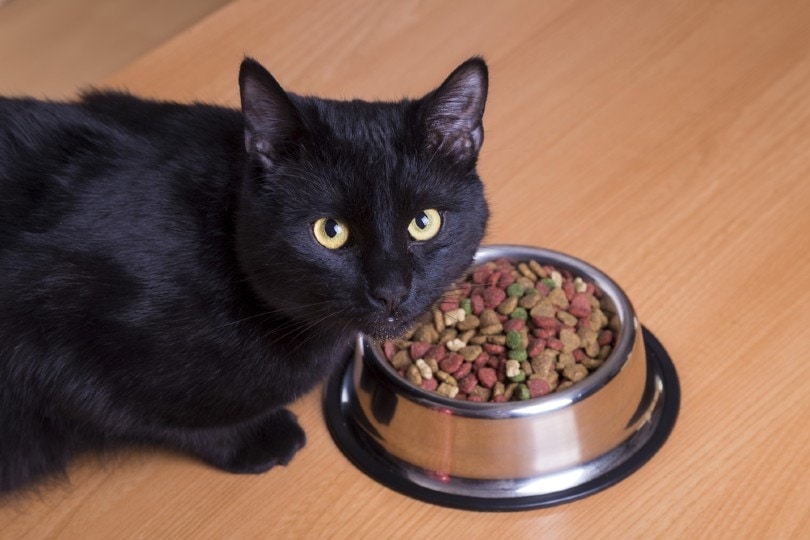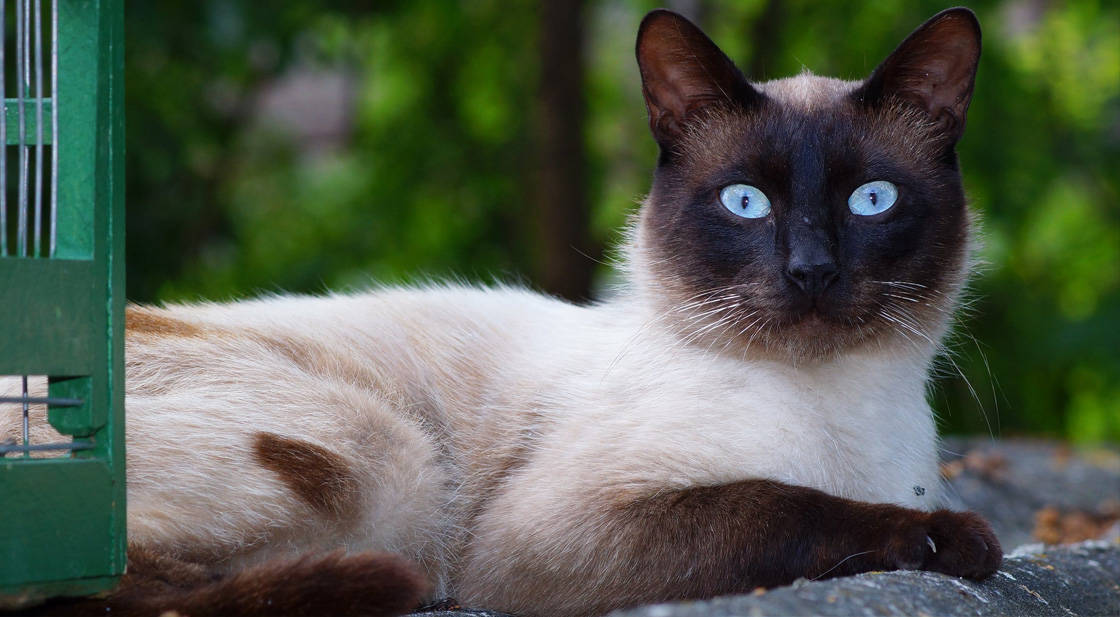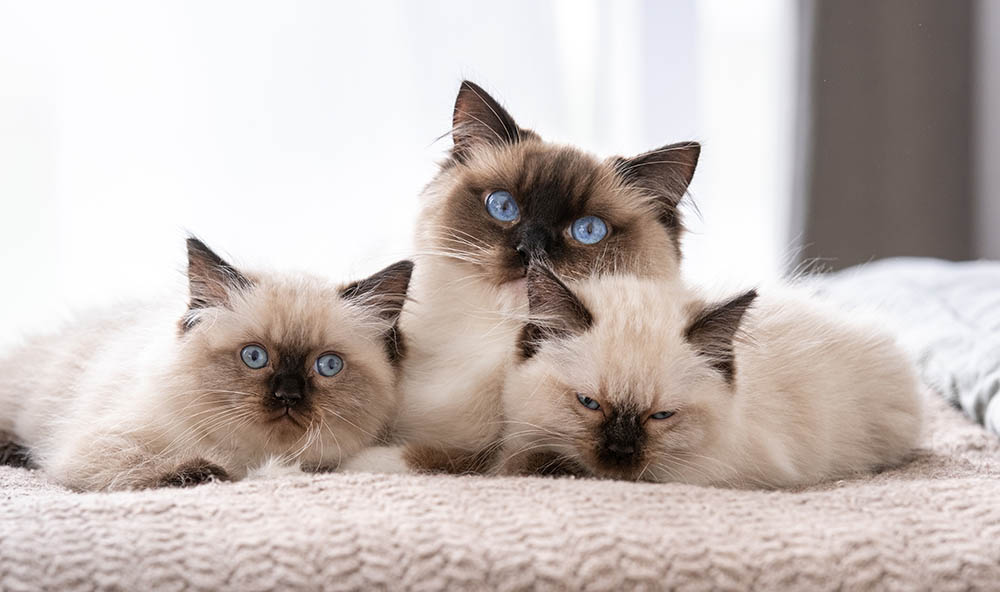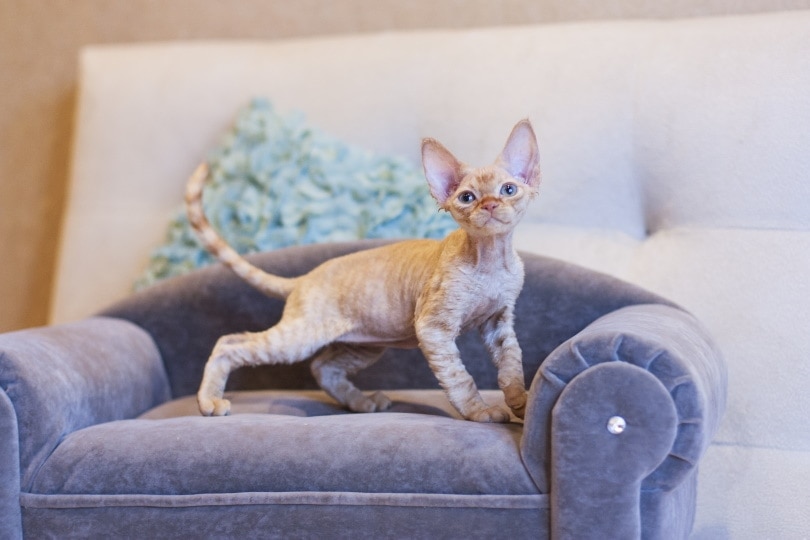Can Cats Eat Ice Cream? Vet-Approved Nutrition Facts & FAQ
Updated on

Ice cream is a tasty treat that many people enjoy. It’s only natural that you’d want to share a favorite snack with your cat, but is it ok to give your cat a taste of ice cream? If you’ve ever wondered if you can share ice cream with your cat, keep reading for the answer!
The short answer is no, you should not feed your cat ice cream. Keep reading to learn more:
Can Cats Eat Ice Cream?
Ideally, you should not give your cats ice cream. Generally, it is safe in very small quantities, though. So, if your cat licks your ice cream spoon or empty bowl before you get it to the dishwasher, there is little chance of any negative side effects from the ice cream.

Is Ice Cream Good for Cats?
Ice cream is not suitable for cats for multiple reasons. The first is that most cats are actually lactose intolerant. Cats lack the enzymes necessary to properly digest dairy, which means that dairy products, including ice cream and frozen yogurt, can lead to stomach cramping and discomfort, nausea, vomiting, diarrhea, and gas. If your cat only has a lick or two of ice cream, you’re not likely to see these harmful effects. If you feed your cat several bites of ice cream, though, then you may notice some stomach problems develop.
The other big reason to avoid giving ice cream to your cat is the nutrient profile of ice cream. It’s high in sugar, fat, and calories. Cats are obligate carnivores, so their diet doesn’t require carbohydrates, particularly processed sugars. Healthy fats are ok in moderation, but the fats in ice cream are generally “bad” fats that have little nutritional value.
Keep in mind that healthy adult cats only require 20–35 calories per pound of body weight per day. This means that the average 10-pound cat is likely only to need about 200–350 calories per day. Considering a ½ cup serving of ice cream contains about 125–150 calories, the calories can add up very quickly for a cat.
Some flavors of ice cream contain chocolate, which is toxic for cats, and should be avoided in any form or amount. Also, artificial sweeteners may be present, such as xylitol, that may be harmful or even toxic as well, although there is limited scientific information on the extent of xylitol effects in cats. It doesn’t seem to be as toxic as it is in dogs based on the advice provided by the ASPCA, but it’s important to be on the safe side and avoid it altogether in your cat.
What Is a Better Treat for Cats Than Ice Cream?
The best treats to offer to your cat are commercial cat treats that have been explicitly formulated with the nutritional needs of cats in mind. Other good options would be bite-sized things like plain cooked chicken, turkey, or fish. Bite-sized, more calorie-dense meats, like beef, lamb, and pork, are also ok when offered in moderation.
If your cat is a fan of dairy-based products, goat’s milk products may be a better pick than cow’s milk products. Fermented goat’s milk contains probiotics and is easier for cats to digest than cow’s milk. However, it is fatty and calorie-dense, so it’s important to offer goat’s milk in moderation, or it can lead to digestive upset and weight gain. There are goat’s milk cat treats and goat’s milk powders that have been formulated with cats in mind, and these are a better option to provide a tasty treat to your cat that has been made with their needs in mind.
Many cats seem to find small pieces of cheese highly appealing. You are not likely to see ill effects from your cat stealing a small piece of cheese. However, this should not be offered intentionally, as cheese is dairy and may lead to a digestive upset in most cats.
Final Thoughts
No matter what you’re feeding to your cat, at least 90% of the daily diet should come from high-quality food designed specifically for cats. The food should be age-appropriate for your cat since kittens, adult cats, and elderly cats all have different nutritional needs.
Treats should only ever be offered in moderation as the calories can add up quickly. Treats are a primary cause of weight gain and obesity in cats. Obese cats are at an increased risk of diseases like diabetes and heart diseases, so it’s essential to maintain your cat at a healthy weight. If you’re unsure if your cat’s weight is healthy, discuss your concerns with your cat’s vet. They will be able to give you guidance on whether your cat’s weight is healthy or not, along with providing options for safe weight loss.
If your cat is an ice cream fiend, a tiny bit of ice cream without chocolate or xylitol from time to time should not be an issue. If fed in large quantities or as a regular treat, though, ice cream can lead to weight gain and stomach upset for your cat. It’s best to avoid ice cream as a treat for cats since there are plenty of great options available for cat treats, but if your cat accidentally licks some, they are unlikely to suffer severe health effects.
Related Read:
Featured Image Credit: stevepb, Pixabay














